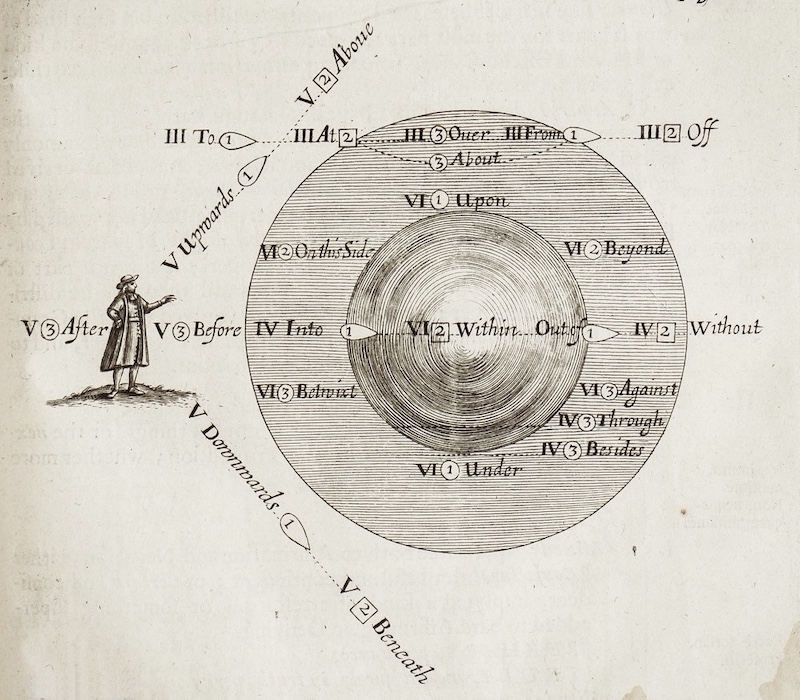With the latest developments of AI such as Large Language Models (LLMs), language returns to the center of the stage in critical humanities, history of science and technology, and political economy. Already in the 1990s, political economy advocated for a “linguistic turn” to grasp the transformations of social relations and labour in post-Fordism (Marazzi 1996), but nobody then could foresee the degree of “linguistic automation” that is taking place today through LMMs. Ultimately, in their latent space, LLMs appear to materialise the ‘machine interlingua’ (Liu 2023) that AI practitioners, linguists, and philosophers have envisioned and cultivated since the 1950. As at the times of information theory and cybernetics, a technical paradigm appears to impose a shift in the theoretical discourse. It is urgent, therefore, to investigate the postulates underlying this second ‘linguistic turn’ driven by AI, in which language reemerges at the core of both the technical composition and philosophical concerns.
The symposium Chat Token Vector addresses the new architecture of language, labour, and social relations in what we call AI today. In current AI, language is involved in the making of a complex technosocial scaffolding and a new variant of structuralism. Language is rewritten along the vectors of statistical models in order to become computer-readable. Under this regime of knowledge production, languages but also artefacts such as images become fictitious commodities. The labour that renders these phenomena possible has been, many pointed out, made invisible. Instead of seeing data centres, cable infrastructures, venture capital, and foremost workers cleaning data, maintaining servers, and repairing hardware, we see AI. What are the actual components of the hidden production pipeline of AI? In which way is language represented and mechanised along such a global assembly line?
The format of communication known as Chat has become an interface to access not only AI but also global communication and the labour market. In LLMs, chats orchestrate the new division of labour of the platform economy, in which “work as language” is deconstructed into “microtasks” and all users become “microworkers”. The unit of this formalisation of language is the Token, that grounds the new automation of linguistics and its mobilization for profit (something that French structuralists could not even remotely foresee possible). On AI platforms, atomised individuals talk, unknowingly, to the abyss of the multidimensional space, to the space of the Vector, a novel cultural technique in which collective knowledge and culture collapse into vast statistical manifolds. Given such a complex scaffolding of social and power relations, the symposium invites papers to question the role of language and labour in the new knowledge economy of AI.
Organised by the ERC project AIMODELS at the Department of Philosophy and Cultural Heritage of Ca' Foscari University of Venice.
In partnership with Cambridge Language Sciences: Research Group 'Exploring Novel Figurative Language to Conceptualise Large Language Models' and Cambridge Digital Humanities.

Lydia Liu, Columbia University
Keynote lecture
Juan Luis Gastaldi, ETH Zurich
Toward a Critical Formalism: Philosophical and Theoretical Effects of a Mathematical Critique of LLMs
Ann Copestake (et al.), Cambridge University
Meaning and Metaphor: Making sense of LLMs
Leonardo Impett, Cambridge University and Fabian Offert, UCSB
Book pre-launch of Vector Media (Meson Press, 2025)
Hannes Bajohr, Berkeley University
The Latent Space of Meaning and the Novel: World Models in AI and Literature
Jonathan Roberge, Étienne Grenier, and Maxime Harvey, INRS Montreal
Lost in Vectorization: Where Critical Hermeneutic Meets AI-powered Creative Sectors
Nina Markl, University of Essex
Managing Language, Work and Language Work
Tommaso Guariento, Ca’ Foscari University Venice (ERC project AIMODELS)
Ungrounded Speculations. The Vector-Grounding Problem Between Linguistics and Economics
Paolo Caffoni, University of Arts and Design Karlsruhe (ERC project AIMODELS)
The Predictive Turn of Language: Reading the Future in the Vector Space
Xiaochang Li, Stanford University
Title TBA
Aaron Mendon-Plasek, Purdue University
Connectionism, Pattern Recognition, and the 1980s Reinvention of AI around Nominalist Ways of Knowing
Mikael Brunila, McGill University Montreal
Cosine Capital: Large Language Models and the Embedding of All Things
Justine Zhang, University of Michigan
The Infrastructure of AI’s Language Fantasy
Aditya Nayak, Aditi Vashistha, and Aakash Gautam, University of Pittsburgh
The Birth of Synthetic Agents: From ‘World as Language’ to ‘Agency as Language
Ksenia Tatarchenko, Singapore Management University
Another Collective: The Russian Language Machine Fund (RLMF)
Marvin Tritschler, University of Stuttgart
The Life of the Sign and Its Interchangeability Through Automation
Pierre Schwarzer, New York University
Language, Liquidated
Alessandro Trevisan, Cambridge University
Forms of Life: An Applied Investigation of LLMs through the Lens of Philosophy of Language
Jonnie Penn and Yaqub Chaudhary, Cambridge University
New Parameters of Power: On LLM-based Manipulation and Control and the Specter of Strategic AI
David Bering-Porter, New School New York
Large Language and Models of the Other: A Semiotics of the Token
Apolline Taillandier, Cambridge University
AI political models: Constructing selves and social orders through programming
Tobias Matzner, Paderborn University
Vector spaces, Embeddings and the Normalization of Meaning
Anna Luhn, Free University Berlin
Power Play In/Against an AI Paradigm of Language
Luz Horne, Universidad de San Andrés
What is not Language in Language: On Literature, LLMs and Politics
Scholars from all disciplines are invited to submit an extended abstract or paper outline in English (minimum 2-3 pages including a short bio) to: aimodels@unive.it
The symposium proceedings will be collected in an Open Access publication to be proposed to the Cambridge Forum on AI journal as a themed issue.
There is no conference fee.
Limited financial assistance may be available to independent scholars and those without a research budget.
Ca' Foscari (Baratto Hall), Venice
Participants are responsible for booking their accommodation.